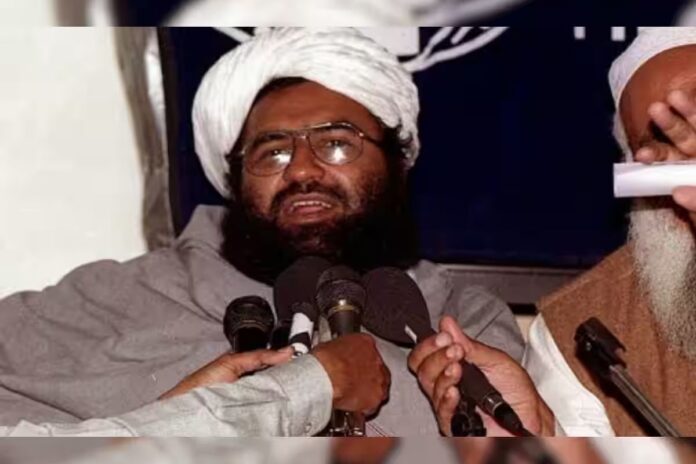India has sharply criticized Pakistan following reports that Jaish-e-Mohammed (JeM) chief and UN-designated terrorist Masood Azhar made a rare public appearance after nearly two decades. Azhar, infamous for orchestrating the 2001 Indian Parliament attack and the 2019 Pulwama attack, reportedly addressed a gathering, intensifying concerns over Pakistan’s handling of terrorism.
Ministry of External Affairs spokesperson Randhir Jaiswal condemned Pakistan’s continued inaction, stating, “If the reports are correct, it exposes the duplicity of Pakistan. Masood Azhar is involved in cross-border terror attacks in India.” He demanded immediate action, saying, “We demand that strong action be taken against him (Azhar) and he should be brought to justice. There has been denial that he is not there in Pakistan.”
During his address, reportedly delivered via an online forum, Azhar renewed his call for jihad against India and Israel, proclaiming, “India, your death is coming.” He also criticized Indian Prime Minister Narendra Modi and Israeli Prime Minister Benjamin Netanyahu, using inflammatory rhetoric to stir his followers. The speech underlined Azhar’s commitment to establishing a global Islamic order through violence.
Azhar’s re-emergence challenges Pakistan’s claims of action against him. After the Pulwama attack, Islamabad had asserted that Azhar’s compound in Bahawalpur was seized. Yet, reports indicate JeM’s operational expansion in the area. In 2020, Pakistan informed the Financial Action Task Force (FATF) that Azhar and his family were untraceable, with speculation that he might have fled to Afghanistan.
India’s renewed call for action underscores its frustration with Pakistan’s repeated denial of Azhar’s presence on its soil. This development adds another layer of complexity to the region’s counterterrorism efforts, with Azhar’s threats casting a shadow over Indo-Pak relations.

